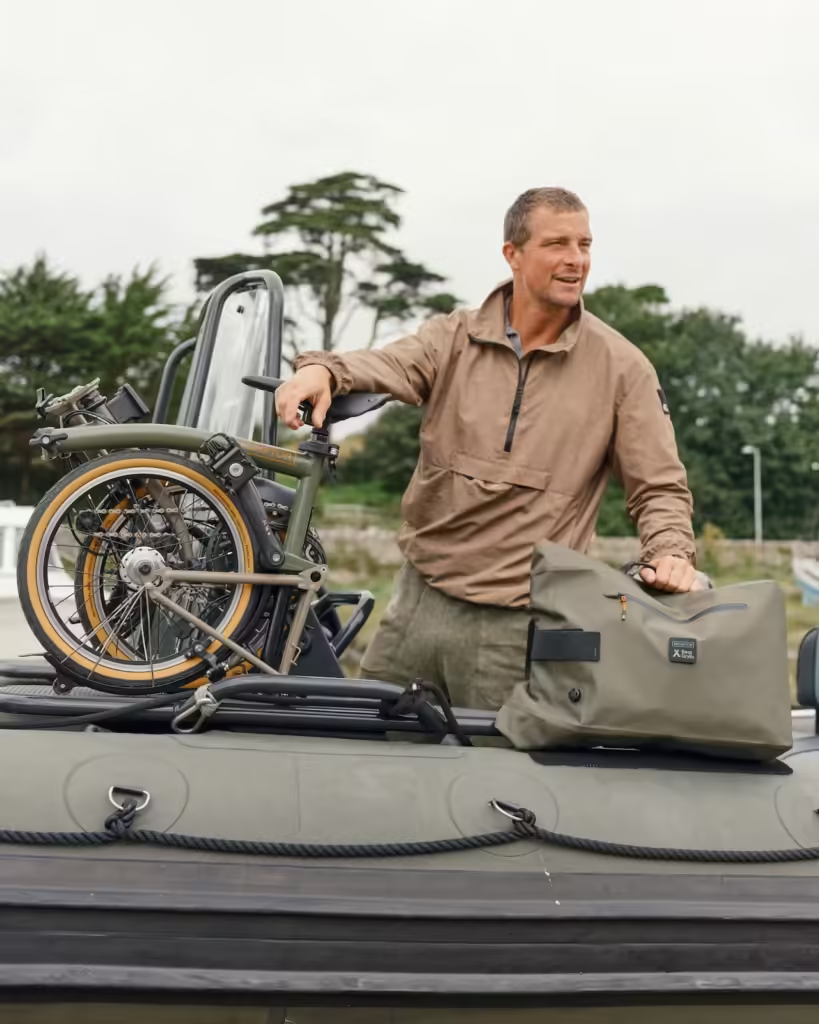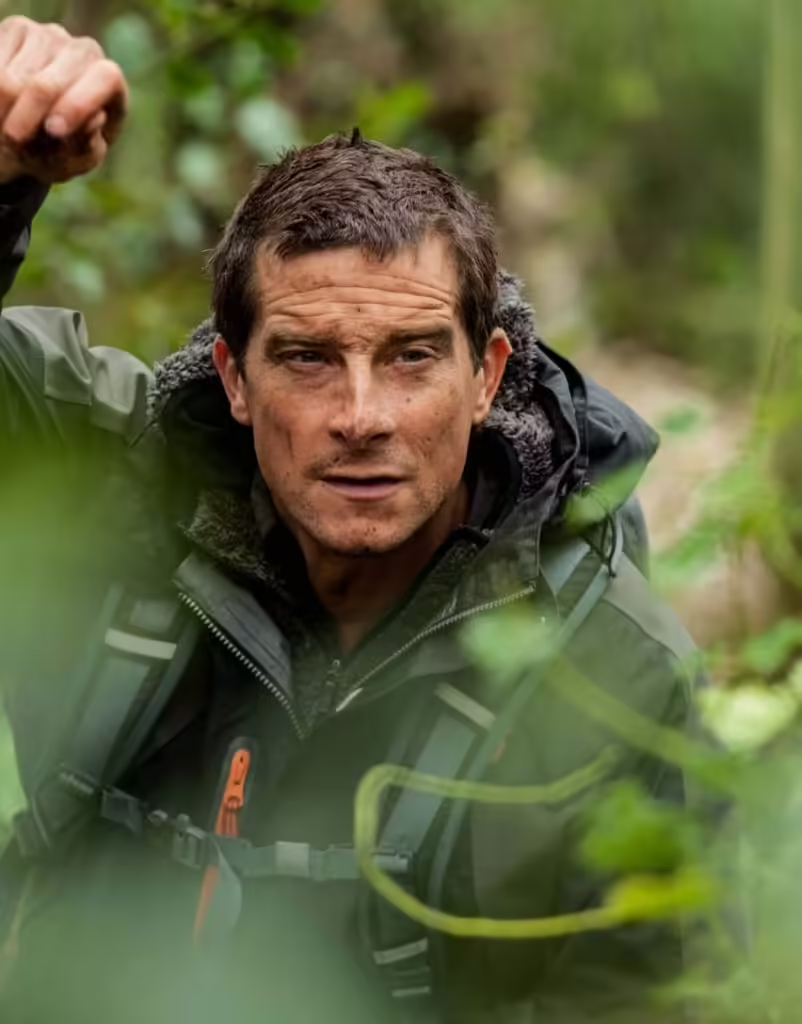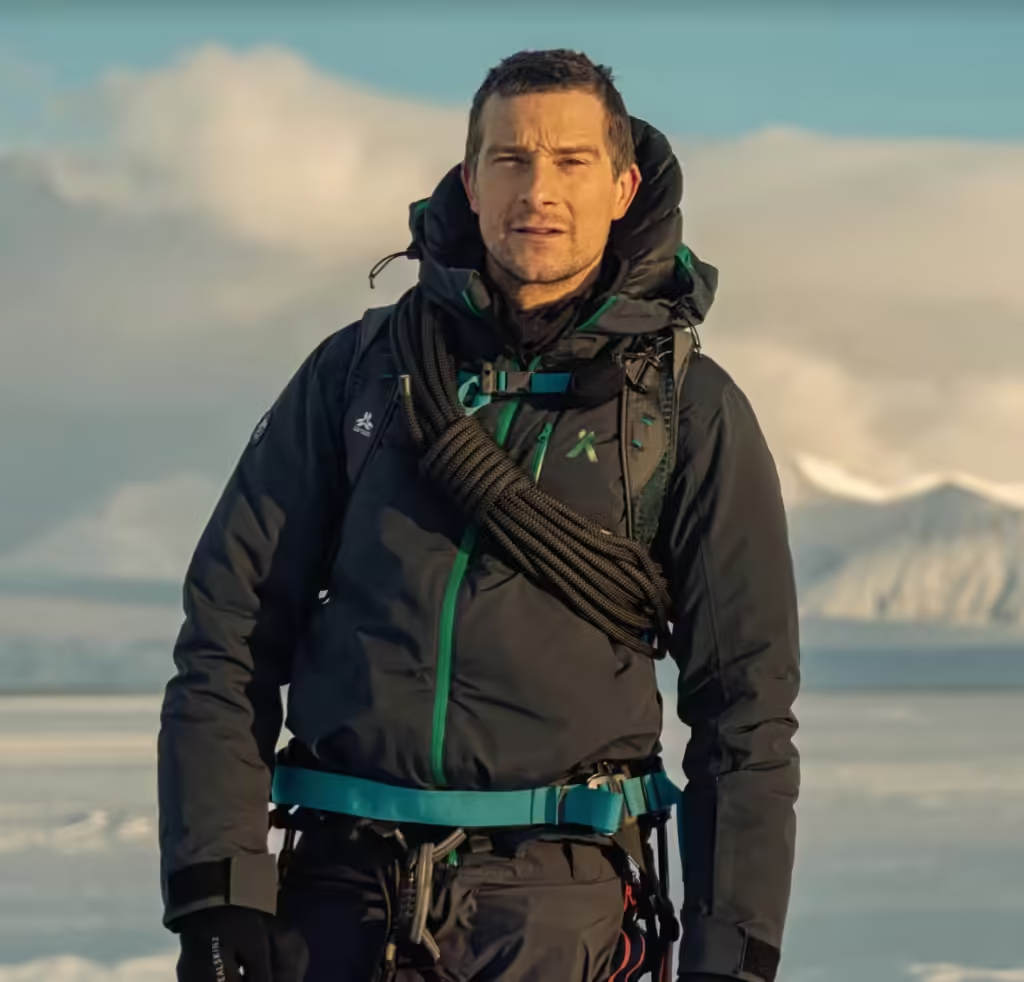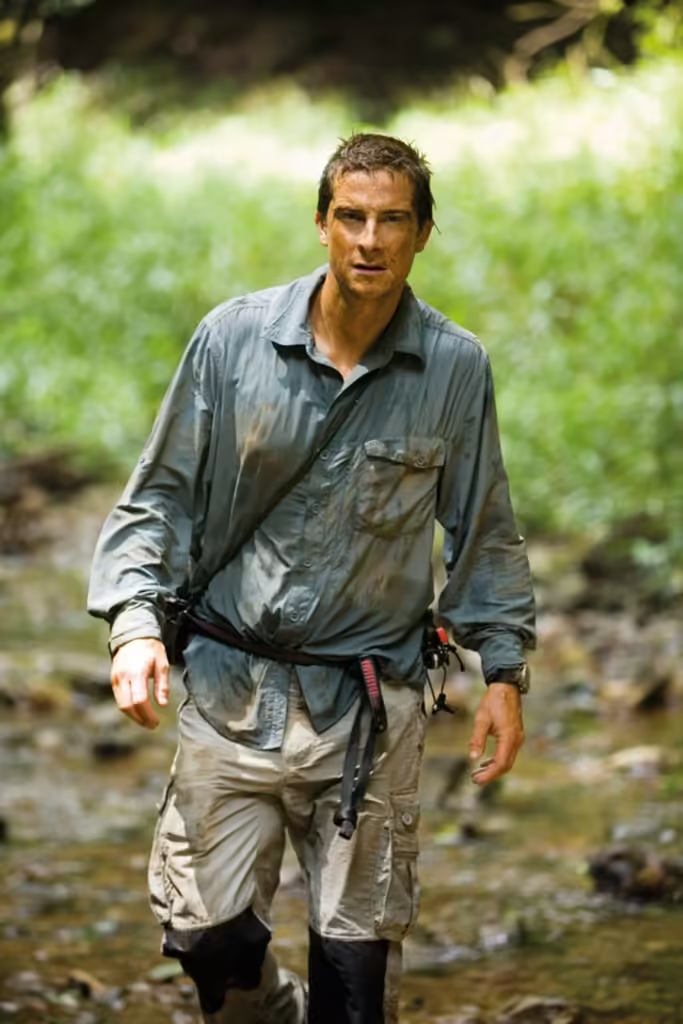BEAR GRYLLS TALKS ABOUT HIS 10 MOST SURVIVING TIPS .

BEAR GRYLLS is a British man . He is trained in martial arts from a very young age . He has also served in the
British army for three years .He was the part of 21 SAS regiment . It was the army from where he excels in
his surviving skills .Bear Grylls is a surviving expert .
BEAR GRYLLS IS MAINLY KNOWN FOR ?
Bear Grylls is mainly known for his survival television series .The renowned shows are ”MAN VS WILD ” , R
” RUNNING WILD WITH BEAR GRYLLS ” ”THE ISLAND WITH BEAR GRYLLS ” ” YOU VS WILD .. This
show was known as second watched movie on NETFLIX US .

10 most surviving tips from BEAR GRYLLS
FOCUS ON SHELTER
BEAR GRYLLS insists the value of shelter is unparalleled – even above food or water. It is the one component that can provide the building blocks for almost any other.
“A shelter will save your life, but only if done properly,” he says. “It will protect you from all the elements, you’ll be able to store food and drink in there, and you can sleep away from the threat of animals or small creatures.”
BEAR GRYLLS says that while countless YouTube videos have taken wilderness shelters into the realm of architectural artforms, basic shelters are simple to construct.
“Most people will create a lean-to shelter, consisting of sticks and pieces of wood arranged with a sloping roof. You’ll make this in between two trees, which will serve as posts that everything else is attached to.
“A rigid pole across the middle acts as the beam from which your sloping roof is attached. Cover this roof with plastic or tarpaulin, or if nothing artificial is present, use large dried-out leaves that rainwater can run off and to the ground. Cover over with bracken to keep heat in.”
Of course, you can upgrade your shelter with an adjacent campfire: “A good shelter will capture body heat and the warmth of a fire, and really could prove to be the difference between life and death in an extreme environment
STAY HYDRATED SAYS BEAR GRYLLS
While BEAR GRYLLS puts shelter ahead of hydration, the need to ensure a constant supply of drinkable water is vital. “When we’ve filmed projects where people are left in remote locations, the immediate talk is of signaling objects like mirrors, or fishing hooks, or being able to make cordage out of clothes.”
It’s tempting to think of the complex solutions first. “Yet first off you’ve got to get your water collection. It’s not just a running supply you’ll need, you also need to think about what you can store the water in, and how you are going to boil it to ensure it’s safe to drink.
“A lack of water is the thing that’s going to kill you the fast.
CARRY A KNIFE SAYS BEAR GRYLLS
Newsflash: when people talk about the one item they would take with them to a desert island, the correct answer isn’t ‘a copy of Lady Chatterley’s Lover’, or ‘my Russ Abbot LP’.
“It’s a knife, every time,” says BEAR GRYLLS . “If you have a knife you have a tool to prepare shelter, you have something to hunt with – unequivocally, a knife is your key wilderness tool… that is, assuming you haven’t got a satellite phone with you, and a waterproofed one at that!”
In some countries, carrying knives is heavily controlled, but you can almost always legally carry a small, folding penknife, particularly if it doesn’t ‘lock’.
“At the end of the day, whatever you’re in… whether you’re in a lifeboat or stranded up a mountain, your priorities for survival are always the same, which is protection, water, food, then rescue. A knife will get you closer to all of those things than anything else .
BE READY AND PREPARED SAYS BEAR GRYLLS
In the instance where you know you are heading out into the wilderness, Grylls says there’s no excuse for not being prepared for the challenges that await. “Discipline is a big part of my life when I’m at home, so that translates perfectly when I know I am about to go out there and take on a project somewhere rural.”
Discipline is a physical as well as a mental skill, and so you know what you need to do to prepare? “Exercise has always been and will always be a crucial part of what I do. It’s imperative I stick to a routine – that’s a package of 40-minute exercises six days a week that includes running, pull-ups, stretches, yoga and doing weights, both as kettlebells in the gym and improvised lifting in woodland, using logs, rocks and anything else I can find.
“This structure enables me to stay mentally and physically sharp, but also boosts my powers of recovery. I’ve always believed it’s not short-term strength or nutrition that gets me through tough situations, it’s base fitness.”
Grylls says mental preparation is just as important as physical, and believes one will feed into the other at times when you require it most. “Knowledge, and prior knowledge, is such an important tool for survivaL
FOLLOW YOUR INSTINCT SAYS BEAR GRYLLS
It’s fair to say the human race is gradually losing many of those innate survival skills we have spent thousands of years perfecting, and the worry is we lose them totally in little more than a couple of generations.
BEAR GRYLLS says holding onto them isn’t difficult. “It does however take a certain type of personality to want to thrust yourself into the wilderness, but we all have survival instinct in us – that’s what a human being is… a survivor.”
Part of being a survivor is to find challenges in everyday life, to keep your instincts honed. “I think it’s always important that we challenge ourselves – we are naturally wired so that we thrive in adversity and rise to big challenges. Modern society has changed some of that but, at heart, we are still driven by that inherent survival emotion.
“Get into some woodland with just a sleeping bag and a knife and see how quickly your mind starts mapping out ideas for food, for shelter, for survival. It’s an incredible buzz.
BE OPTIMISTIC SAYS BEAR GRYLLS
While ‘positive mental attitude’ is a phrase most commonly boomed out in locker-rooms and on athletics tracks, it’s never more relevant than in the great beyond.
“You need to get straight and directly into the mindset that says everything you are doing is for a purpose, and that sole purpose is to stay alive,” says Grylls. “If you don’t get a fire going, you’re in trouble that night. If you don’t shelter up, you’re going to be devoured by everything. You have to see everything practically, and you have to embrace not just your successes, but failures too.
On that note, allow yourself to make mistakes, too. “These days we style our holidays and our travel in a way that means everything has to be perfect and to schedule. We’re conditioned to think this way, right from when we arrive at the departure gate at a designated time. But exploring, which is what travel is, should never be structured like that – it should be free and boundary-free.
REMIND YOUR HAPPY MOMENTS SAYS BEAR GRYLLS
There are times we all need to remind ourselves we have what it takes. “The one that gave me the most satisfaction was probably Everest,” says Grylls, referencing his climb in 1988. “It was a personal challenge of mine from almost the first moment, as a kid, when I realized people actually climbed this monster. While becoming the youngest Brit to climb it was a huge buzz, it was really all about achieving something for myself and my Dad.
“I do feel I have done other things just to get them out the way. There are some I look back on and wince – BASE jumping being one, where the danger tends to outweigh the sense.

KEEP YOUR MIND BUSY SAYS BEAR GRYLLS
Grylls says the great outdoors will test your mental fortitude in ways you can never imagine. “Time can slow down, speed up – obstacles that seem insurmountable one day will be easy the next, and vice versa. You’ve got to be adaptable in each moment.”
He reaches for an example that many survival experts quote, but with good reason: “A good example is the guy who spent 13 months stranded on a 22ft fiber-glass boat. To stop himself from going mad he broke down the day down into goals that he needed to achieve.
“Each day he knew at certain points he needed to get out of the sun, or out of the wind or the rain, or the waves. Then it’s protection, then it’s rescue, make sure you’re doing all you can, whether it’s keeping your flares dry or making the boat visible.
“Then it’s about water collection, then it’s about food, getting your fishing lines out. Even a day on a raft, if you’re doing survival right, it’s a packed day where you’re not getting much chance to let your mind fail you and slip into despair, because that’s when you stop having the motivation to do the task.”
FOCUS FOCUS FOCUS SAYS BEAR GRYLLS
As is the case with most pursuits, a majority of people won’t even make it to the start line, and simply pressing the button on a challenge can be all the motivation some need to subsequently complete it, as the prospect of giving up is unthinkable.
“Make a decision to just begin – press the button,” says Grylls. “There is great power in just beginning and committing to action, even when we don’t feel like it. It is the sign of a champion: an ability to keep giving their all despite the feelings that say, ‘give up!’
Grylls credits his upbringing with giving him freedom and confidence: “My dad inspired me to not be afraid to go for things and to take a few risks. Failure was never failure, but instead a stepping-stone to success, and I think this is a great life lesson. And remember: the best way over our fears is through them!
PREPARE YOUR DIET SAYS BEAR GRYLLS
Finally, Grylls says building food familiarity for expeditions is vital. “When I’m at home I have a pretty good diet. I do all I can to eat healthily, generally avoiding sugar, dairy and wheat and focusing on whole foods as found in nature – that means when I get out there in the middle of nowhere I’m not suddenly craving foods that bear no relation to what’s in front of me.
“I’m not entirely convinced that humankind’s diet was always plant-based, so on that note I try to eat good organic grass-fed meat. Of course fish is really healthy too. I try to eat like that about 80% of the time, and it’s definitely a basis for a meal that you can replicate out in the wilderness

THANKYOU FOR READING
.”




Post Comment